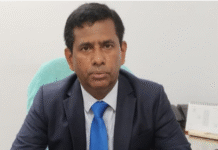
As Saudi Arabia announced a new labour reform initiative to ease foreign workers’ contractual restrictions, migrant rights activists and officials hope the move will improve the conditions of thousands of Bangladeshi workers in the oil-rich country.
The migrant workers, who are often subjected to various forms of abuse and exploitation, will be allowed to have more freedom in job mobility once the Labour Reform Initiative (LRI) comes into effect on March 14 next year, they said.
The reform initiative announced earlier this month would also lessen the restrictions on exit from and re-entry into the kingdom as it seeks to remove some elements of the “kafala” sponsorship system. The LRI would apply to all expatriates employed in the private sector.
The seven-decade-old “kafala” system ties migrant workers to one employer or sponsor, known as “kafeel”, whose permission they need to change jobs, leave and re-enter into the country — which rights groups have been criticising as exploitative and a form of modern slavery.
“Most of the Bangladeshi migrant workers are expected to get the benefit since they are employed in the private sector,” said Aminul Islam, labour welfare counsellor at the Bangladesh Consulate General in Jeddah.
Despite being legally eligible, Bangladeshi migrant workers were earlier denied “final exit” permission by sponsors, and such workers could go to the Saudi labour court to settle the dispute, he added.
Migrant workers become eligible for final exit when the work contract ends.
Now, the new reforms will allow them “to leave the Kingdom after the end of the employment contract without the employer’s consent”, according to a Saudi Press Agency report.
On November 4, the Saudi Ministry of Human Resources and Social Development launched the LRI under the “National Transformation Program” (NTP) to enhance the contractual relationship between workers and employers.
The re-entry reforms will allow workers to travel outside Saudi Arabia without the employer’s approval after submitting a request; the employer will be notified electronically of their departure.
The Saudi authorities made the move amid criticism from global migration experts and rights defenders who have long been demanding a drastic reform to the rigid nature of its “kafala” system.
The Gulf nation is the biggest overseas labour market for Bangladesh and also the top remittance-generating country. It is home to more than 22 lakh Bangladeshis, most of whom are employed in the private sector.
In the 2019-2020 fiscal year, Bangladeshi migrant workers sent home around $4 billion in remittance from Saudi Arabia, according to Bangladesh Bank data.
Migrant rights activists said the Bangladesh government should look at LRI implementation with due importance to protect the rights of Bangladeshi workers there.
Shariful Hasan, head of Brac Migration Programme, said the reform initiative is the inception of a positive move.
“I think Saudi Arabia has been undergoing a process which at the end of the day will benefit all migrants,” he added.
He, however, said the government should see to what extent this initiative will be fruitful for Bangladeshi migrant workers.
Pointing out that many Bangladeshi workers are employed as housemaids and drivers in Saudi Arabia, Shariful said the Bangladesh government has to look into how these groups of migrant workers are benefited from the new reforms.
The Brac official said the government should also observe whether the reform initiative will uphold migrants’ rights safeguarded by the 1990 International Convention on the Protection of the Rights of All Migrant Workers and Members of Their Families.
It covers a migrant’s right to movement, wage protection, and scope for sharing opinion, he added.
Shakirul Islam, chairperson of Ovibashi Karmi Unnayan Program, said the Saudi authorities seek to move from individual sponsorship to the “state-governed structural system” through this reform.
It should be implemented, he said, hoping the new reform will create more space for the protection of Bangladeshis migrant workers there.









